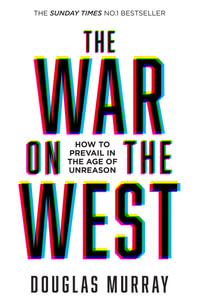"By interrogating the values of care, Thomas Randall's Justice, Care, and Value addresses the under-examined yet crucial aspect of care ethics: interdependency. The novel approach to exploring partiality, socialist democracies, resource interconnection, and intergenerational care make significant theoretical and applied contributions to the growing care theory literature."
Maurice Hamington, Professor of Philosophy and Affiliate Faculty in Women, Gender, and Sexuality Studies at Portland State University
"Randall provides a compelling starting point for care theorists to consider three particularly pressing concerns: redistribution and material inequality, territorial and natural resource rights, and obligations to past and future generations. In so doing, he also skillfully demonstrates how and why mainstream moral philosophy would benefit greatly from engaging with a feminist ethics of care, and thereby begins to build meaningful dialogue between these philosophical traditions. I was particularly impressed with Randall's work on how to orient a feminist ethics of care towards questions of intergenerational justice. How can care ethicists think about responsibilities that the living owe to those who have come before and those who are yet to come - and with whom, therefore, no direct relation exists in the first place? Randall's use of 'imaginal content' as that which can ground such responsibilities is innovative and exciting, and further enriches existing scholarship on the significance of imagination as a crucial epistemic resource in and for care theory. As someone whose research is deeply concerned with addressing the (past, present, and ongoing) harms of colonialism, I look forward to returning to this argument time and time again."
Maggie FitzGerald, Assistant Professor, Department of Political Studies, University of Saskatchewan
"This is a timely and relevant rumination on important but often neglected themes in mainstream normative political theory: care and a political ethics of caring relations. What kinds conditions might there be to enable good caring relations? How ought such relations be structured? How ought resources be distributed? Randall carefully and persuasively responds to these questions by drawing together normative political theory (especially theories of distributive justice and obligations to future generations), feminist ethics, and the human rights literature. This work is of great interest both to general readers in normative political theory, as well those familiar with more specialized scholarship in feminism and political theory."
Nandita Biswas Mellamphy, Associate Professor, Department of Political Science, Western University
"An important exploration of the promise of the ethics of care as moral, social, political, and economic theory. Randall contributes significantly to the development of care ethics itself, and examines its potential for dealing with issues of distributive justice, economic structure, global organization, our obligations to future generations, and much more. He greatly advances our understanding of what we ought to value and how we ought to live."
Virginia Held, Author of The Ethics of Care: Personal, Political, and Global
"An achievement in ethics and political philosophy, Justice, Care, and Value provides an architectural guide to the ethics of care and plays out implications that most ethicists only gesture at. These include domains from capitalism to relational territorial rights to intergenerational "'future care.'"
Kathryn Norlock, The Kenneth Mark Drain Chair in Ethics and Professor of Philosophy, Trent University
























